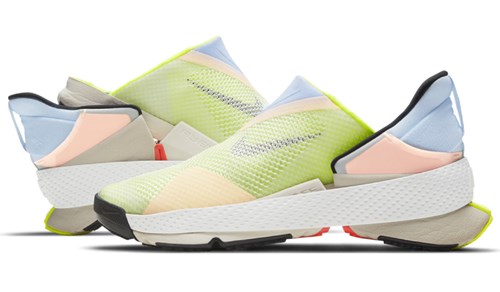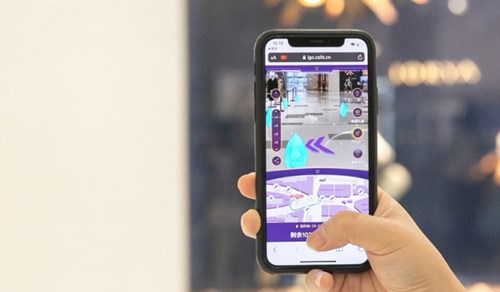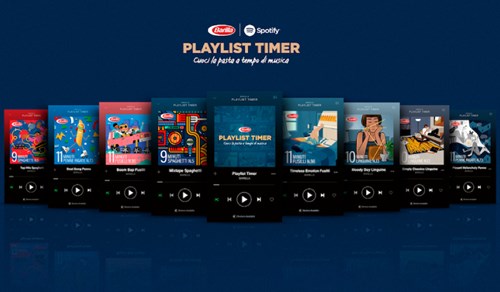INNOVATION IN A POST-COVID19 SCENARIO | article | Tuesday, May 18, 2021
RESETTING PRIORITIES

In the post-pandemic scenario, there will be an irrepressible desire to make up for lost time, make decisions that were left on standby and recover interrupted personal and collective rituals. In recent years, time has been spoken of as an increasingly scarce and, as such, highly valued resource. The lack of free time due to the demands of professional and social life was a status symbol in a capitalist society that rewarded maximum productivity. However, the threat of COVID-19 came to break with this frantic automatism of agendas loaded with activities, travel and occupations. The feeling that the world stopped, due to the restrictions imposed, alleviated the individual guilt of having to stay at home (albeit teleworking). While at first being locked out of their homes allowed many people to slow down to find time for rest and leisure, when quarantines and restrictions were extended for months, the sense of frustration over unrealized plans began to grow. More than 12 months into the pandemic, the list of objectives is growing longer and longer and the anxiety to meet them is increasing. There is a desire to press the “play” button, after a long “pause”.
Some groups —teenagers, for instance— will resume the emotional and identity processes that were detained: meeting their peers to escape their parents’ control. Most will resume the rituals of socializing with loved ones, although meeting habits will be mediated by new sanitary rules. A critical mass will execute those decisions meditated calmly during the hours of confinement that will lead to changes in their lives: redesigning the home, moving to a new city, changing jobs, learning something new, adding more wellness experiences.
Incorporating new self-care practices will be a challenge, so tools that provide simple and flexible solutions, with information and strategies to adapt at any time, will be more successful. Verv is an application that takes a holistic approach to wellness and makes life easier for users by eliminating the need for them to consult a variety of applications and platforms to take care of different aspects of their health. The app integrates a variety of routines and methods to improve its users’ fitness and health, namely: cardiovascular exercises, interval training, dance, mindfulness techniques, meditation and nutritional advice. Google Health uses smartphone cameras to monitor the user’s key vital signs and make health tracking accessible. This system may be useful for those seeking to track and improve their daily well-being, including monitoring of respiratory and heart rate functions, as a supplement to a consultation with their medical professional.


There is a feeling that it will no longer be possible to do everything; we will have to make a conscious choice. On a horizon where the threat of intermittent constraints will continue, people will seek to maximize the time spent on people and tasks, discarding those that do not add much meaning to their lives. Despite the desire, travel has been postponed for some time, and this situation causes a change in the way people think about where to go and what to do there in the future. At the Reuters Next Virtual Forum in January, Airbnb CEO Brian Chesky stated that “mass travel will be replaced by meaningful travel...and I think this is a semi-permanent change.” A report from the same company states that people want to travel again, but the reasons for doing so will change: most will want to travel to see friends and family, as an antidote to isolation and disconnection, but also as an avenue for personal growth, introspection and wellness (travel as a form of therapy).

There will be a greater desire to adopt products that will simplify everyday tasks and thus save time to be invested in other more important activities. Nike has launched a laceless shoe called Nike GO FlyEase, which saves the wearer from having to use their hands as they would when putting on a lace-up shoe. This shoe consists of two sections, connected by a hinge, which allows putting them on and taking them off without tying laces or using other fasteners. The hinge is a rubber band called midsole tensioner by Nike, which allows the shoe to be secured both in an open position for foot entry and in a closed position for sports. The Huawei Watch GT 2 Pro smartwatch is a tool to stay active and connected for longer. The watch is capable of providing up to two weeks of use on a single charge and offers at least 100 training modes, including more than 10 voice-guided running courses. This will allow athletes to track their training with complete accuracy and help them identify different ways in which they can improve.

Shopping experiences are undergoing a profound transformation due to increased user preferences for online shopping and home delivery services. During the pandemic, many people have used e-commerce for the first time to purchase certain products that they used to buy regularly in a store and have seen the practical utility of these tools. While the physical store will not disappear in a post-COVID-19 scenario, what is certain is that many of them will need to incorporate new functionalities to facilitate the user experience, allowing them to save time. iGO, is the first mixed reality shopping browser and was created to support the first 5G-enabled shopping complex in China by Changsha IFS. The shopping tool provides an immersive and user-friendly experience through augmented reality, accessible without the need to download a special app (it is compatible with WeChat). With smart technology, the system has the ability to identify locations in the shopping center, assist visitors with orientation, access discounts and locate product information, all visible through mobile device screens in real time. The system supports retailers with information on customer behavior and consumption preferences.

People will have an urgency to reestablish and reignite positive feelings and emotions. The rush to feel good and active again will lead to choosing those experiences that imply an improvement in the short term. The future has become very hazy and uncertain. Consumption priorities will be redefined based on such criteria as, on the one hand, utility and simplicity (we don't want to waste our valuable time in freedom!), and, on the other hand, instant emotional benefit (we want to feel good now, because there may not be a tomorrow!). Barilla released a collection of eight Spotify playlists with run times equal to the cooking times of different pasta shapes. These playlists combine Italy's four most popular genres (pop, hip-hop, indie and classic hits) with pasta spaghetti, linguine, fusilli and penne rigate. Playlists are updated periodically to offer variety to listeners and are titled: “Mixtape Spaghetti”, “Boom Bap Fusilli”, “Pleasant Melancholy Penne”, “Moody Day Linguine”, “Top Hits Spaghetti”, “Best Song Penne”, “Timeless Emotion Fusilli”, and “Simply Classics Linguine”. IKEA Dubai allows customers to pay for products with their time. The logic is simple: the more time customers spend traveling to IKEA, the more they can buy. The campaign allows customers to count their time as currency by simply showing IKEA checkout staff their Google Maps timeline, which shows how much time they have spent traveling to IKEA stores.
One of the most widespread reflections provoked by the pandemic is the balance between life and work. There is a consensus that alternative ways can be found to manage both dimensions in favor of more time for personal enjoyment. The world of work will be transformed by new routines, where digital resources will gain prominence to create mixed systems that will alternate remote and face-to-face work. The elimination of unnecessary travel for meetings that can be managed remotely will mark an important change. New technologies and work dynamics will be necessary to achieve cohesion among geographically dispersed teams with little physical contact. A major challenge will be to reduce the fatigue generated by endless hours of video conferencing along with the instability of Internet connections that can hinder work dynamics. Optimizing time, infrastructure and work processes in a world that can be disrupted again at any time will be a requirement. Around is a startup that helps companies communicate collaboratively through audio and video without the need for formal videoconferencing. Users’ faces appear as little bubbles floating above wherever a team is working, whether it's a shared Google document or a channel in Slack. Employees can share gifs and reactions with emojis, or use camera filters to maintain a relaxed atmosphere. Camera algorithms track the user’s movements to keep them in focus at all times, while audio technology cleans up background noise to avoid feedback if multiple people are recording video in the same room.

The obligation to remain locked and on standby during the pandemic has shown that the obsession with “productive time” typical of contemporary society has had a negative impact on people’s health. There are individuals who have felt better in the calm of their house than carrying out a full schedule of activities in the outside world. It is possible to have a different rhythm of life that allows us to improve certain physical, cognitive and emotional indicators. Shifts toward wellness practices and habits that favor inactivity and better sleep are beginning to emerge. Niksen is a Dutch lifestyle concept that is becoming a trend in Northern Europe. It is the art of doing nothing to combat an increasingly accelerated pace of life. Practicing niksen means simply being. It includes activities such as walking, looking at the environment or listening to music, all “without purpose”, without worrying about being efficient and productive. This philosophy, based on the Italian concept of ‘il dolce far niente’, has proven to be effective in reducing anxiety and strengthening the immune system.
In a post-pandemic scenario, the focus will be on what, how and how much of our valuable personal time we invest in each task, prioritizing those moments that bring more meaning to life and reducing others that do not deserve so much energy. Brands should simplify the instances of shopping experiences that do not add value, to focus on those meaningful moments that allow them to build a deep relationship with the consumer.
